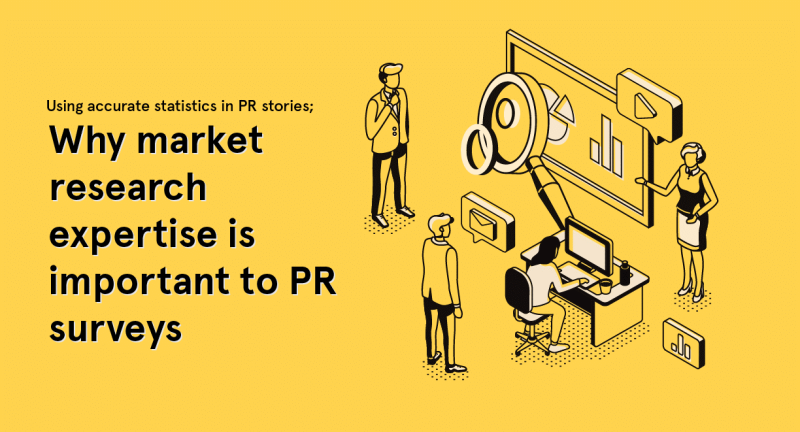
Written by 3Gem Research.
Using opinion research to generate PR stories, is a cost-effective way of creating interesting content, and to achieve the marketing communication goals of your client. The end result is usually an article that is published or broadcast by an independent media organisation, so it is essential that any statistics it contains, or it is based on, are robust and stand up to debate. The consequence of using poor quality research in PR stories, could seriously damage the credibility and reputation of your client, and your organisation.
PR stories written from research studies, need to:
· Be based on a robust & representative sample, so that conclusions and inferences are applicable to whatever group of people the story is about. For example, a story about the UK as a whole, needs to be based on a UK Nationally Representative sample, otherwise statements contained within it cannot be made about the UK as a whole. Note, ‘Representative’ does not simply mean having a large enough total sample size – the sample needs to accurately reflect the proportions of key demographic groups (usually based on age, gender & region) within the UK.
· Use unbiased questions, so that results are believable and stand up to scrutiny. This isn’t always straightforward; the order of questions, use of certain key words, or the wording and inclusion of different answers options, are all considerations for writing an accurate questionnaire. Respondents should not feel forced into providing an answer that doesn’t truly represent their own, personal view.
· Quote statistics appropriately and accurately, so the story represents the findings of the research and does not misrepresent any results. Statements made within the story need to be validated by the statistics, otherwise they can’t be considered as being true. Guidance on what can or can’t be inferred by results, should be provided by the research agency.
· Be supplied by an expert, independent research agency, who should adhere to the MRS Code of Conduct, guaranteeing that certain levels of quality standards will be met, and ultimately meaning added credibility, reliability and assurance.
